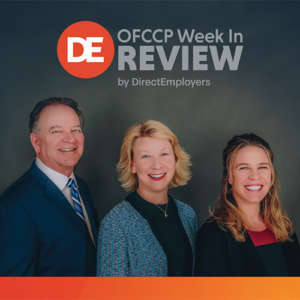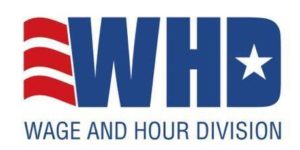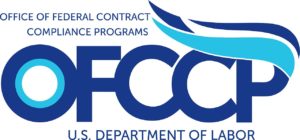 The DE OFCCP Week in Review (WIR) is a simple, fast and direct summary of relevant happenings in the OFCCP regulatory environment, authored by experts John C. Fox, Candee Chambers and Jennifer Polcer. In today’s edition, they discuss:
The DE OFCCP Week in Review (WIR) is a simple, fast and direct summary of relevant happenings in the OFCCP regulatory environment, authored by experts John C. Fox, Candee Chambers and Jennifer Polcer. In today’s edition, they discuss:
- DirectEmployers Launched Taapestry, a One-Stop Shop Solution for Affirmative Action and EEO Solutions
- WHD Issued Three New Opinion Letters
- Enhance Your Expertise by Enrolling in DE Academy’s Six-Week Disability Awareness Mastery Course
- EEOC Seeks to Drop Component 2!
- OFCCP Hosted a Section 503 Focused Review Webinar
- Indiana ILG Hosted Lance Gibbons
Tuesday, September 10, 2019: DirectEmployers Launched Taapestry, a One-Stop Shop Solution for Affirmative Action and EEO Solutions

Tuesday, September 10, 2019: WHD Issued Three New Opinion Letters

- FMLA2019-3-A provides an Opinion on whether an employer may delay designating paid leave as FMLA leave due to a collective bargaining agreement. The short answer is “no” and the Opinion circles back to a previous Opinion Letter (FMLA2019-1-A) which reiterates that an employer may not delay the designation of FMLA-qualifying leave.
- FLSA2019-13 provides an Opinion concerning the retail or service establishment overtime exemption under Section 7(i) of the FLSA.
- CCPA2019-1 provides an Opinion on whether employers’ contributions to employees’ health savings accounts (HSAs) are earnings for wage garnishment purposes under the CCPA. Based on the information provided in the example given, the employer contributions to HSAs are not earnings under the CCPA and therefore not subject to CCPA’s garnishment limitations.
To explore additional Wage and Hour Opinion Letters, refer to the Final Rulings and Opinion Letters page on its website.
Wednesday, September 11, 2019: Enhance Your Expertise by Enrolling in DE Academy’s Six-Week Disability Awareness Mastery Course
To advance skillsets in the recruitment, hiring, and retention of individuals with disabilities, DE Academy will be offering a six-week Disability Awareness Mastery Course. This course will provide a wealth of foundational information to those who are new to disability inclusion, or who feel education is needed to increase their knowledge. Hosted by disability expert, Sheridan Walker of HirePotential, Inc., learners will enjoy a one-hour live lesson each Tuesday and live Q&A lesson each Thursday, beginning October 1, 2019, and running through November 7, 2019. In addition to providing a direct line to one of the foremost experts in disability education, learners will be able to share ideas and ask questions in a confidential and safe learning environment. With strategic planning activities beginning for 2020, see how this course could help set your team up for success and further advance disability inclusion efforts within your organization.
Thursday, September 12, 2019: EEOC Seeks to Drop Component 2!

Do I still need to submit my Component 2 data?
Yes. If fact, employers may receive an email and/or phone call reminding them that submitting the Component 2 data “is not voluntary.” Admittedly, this is somewhat unusual as the Court should not have power to order employers to file their Component 2 reports, however, NORC is doing their best to encourage employers to get their data filed as the number of employers filing their Component 2 reports is 13.4% as of September 5, 2019.
So Now What?
The EEOC’s Friday Notice of Information Collection has a comment period of 61 days, closing on November 12, 2019. The Agency is seeking comments on the following:
- Whether the proposed collection of information is necessary for the proper performance of the Commission’s functions, including whether the information will have practical utility;
- The accuracy of the Commission’s estimate of the burden of the proposed collection of information, including the validity of the methodology and assumptions used. Why? In May 2018, the EEOC created the Office of Enterprise Data and Analytics (OEDA) with the goal of creating a 21st-century data and analytics organization at the agency. In March 2019, staff in OEDA revisited the previous methodology for calculating burden estimates utilized by the EEOC for the EEO-1. In light of these considerations, OEDA staff believed that the EEOC’s previous burden estimate for the EEO-1 had insufficiently calculated what the burden would be to submit the data.
- How to enhance the quality, utility, and clarity of the information to be collected; and
- How to minimize the burden of the collection of information on those who are to respond, including the use of appropriate automated, electronic, mechanical, or other technological collection techniques or other forms of information technology, g.,permitting electronic submission of responses.
By the Numbers
The number of Component 1 filers increased to 87,021 by the close of the data year 2018. The EEOC is estimating that the number of filers required to submit Component 1 will increase again to approximately 90,000 for data years 2019 through 2021.
Thursday, September 12, 2019: OFCCP Hosted a Section 503 Focused Review Webinar

- Workplace Inclusion
- E.R.T. (Certainty, Efficiency, Transparency & Recognition)
- Section 503 Focused Reviews
- Resources
A few highlights from the presentation included:
- OFCCP is ONLY requesting copies of EO 11246 Affirmative Action Plans (AAPs) during the Section 503 Focused Reviews to confirm that the “Data Metrics” gathered in Section 503 AAPs are the same as the Job Groups in the EO 11246 AAP for Minorities and Women. Williams expressed to the audience if anyone had any ideas on another way to gather this information (other than asking for the EO 11246 AAP) to let her know, OFCCP is open to listening to suggestions.
- Compliance Officers will be looking at onboarding forms & procedures, the self-identification process, the application process (when/where/how do individuals apply – is it accessible?), interview screening processes and questions. Later in the Q&A session, the question of “does this mean ACTUAL interview questions?” and the answer was “yes, not by memory or guess, but actual interview questions as they were asked.” NOTE: OFCCP has no legal authority, however, to compel Government Contractors subject to Section 503 to create records the contractor does not make or maintain.
Listeners were able to submit questions throughout the webinar, and the last half hour was reserved to answer as many questions as possible. NOTE: Although the webinar was recorded and will be available on the OFFCP webpage –potentially by the end of next week – the Q&A portion will not be available for re-broadcast. Rather, OFCCP intends to summarize the Q&A session and provide additional Section 503 Focused Review FAQs.
OFCCP answered roughly 30 questions. Of particular interest was a question on how employers can find out about events in their areas, to which the OFCCP recommended contacting the “ROCs” Regional Outreach Coordinators. Contact information for these individuals is available on-line.
When asked if it would be okay for recruiters to see the responses to the self-id forms to give preference to job-seekers indicating “yes” to having had/had a disability, the answer was a resounding NO!!, with the follow-up comment that FAQs on hiring preferences would be forthcoming from the Agency.
You may access the recording of this presentation and additional resources to come by going to the Section 503 Focused Review landing page.
Friday, September 13, 2019: Indiana ILG Hosted Lance Gibbons

Mr. Shoemaker informed the group that the EEOC is wrapping up its fiscal year, so the Agency is working diligently to close cases. EEOC Chair, Janet Dhillon, will testify Thursday, September 19, 2019, before Congress. The EEOC is hoping to broadcast the event live via its webpage. Listeners may expect to hear Chair Dhillon express her interest to get to resolutions early to avoid litigation and focus on the ‘prevention’ portion of the EEOCs mission by spotlighting the importance of outreach and advocacy for employers.
- Gibbons presented an update on what is going on at the OFCCP, what to expect with the training the Compliance Officers are receiving, the recent leadership changes at the DOL/OFCCP, and what Government contractors will be up against in the coming months.
- Of particular interest was a review of some of the new individual state laws coming soon, such as the Illinois Artificial Intelligence Video Interview Act. This Act is scheduled to go into effect on January 1, 2020. The Act requires employers to obtain a job-seekers consent before asking the person to complete a video interview that uses AI to assess such things as the persons’ responses, facial expressions, and fitness for the position. Additionally, employers must delete the candidate’s interview within 30 days if requested by the person, which conflicts with OFCCP’s recordkeeping requirements
- AI legislation is also pending in California and New York.
THIS COLUMN IS MEANT TO ASSIST IN A GENERAL UNDERSTANDING OF THE CURRENT LAW AND PRACTICE RELATING TO OFCCP. IT IS NOT TO BE REGARDED AS LEGAL ADVICE. COMPANIES OR INDIVIDUALS WITH PARTICULAR QUESTIONS SHOULD SEEK ADVICE OF COUNSEL.
SUBSCRIBE.
Compliance Alerts
Compliance Tips
Week In Review (WIR)
Subscribe to receive alerts, news and updates on all things related to OFCCP compliance as it applies to federal contractors.
OFCCP Compliance Text Alerts
Get OFCCP compliance alerts on your cell phone. Text the word compliance to 55678 and confirm your subscription. Provider message and data rates may apply.

